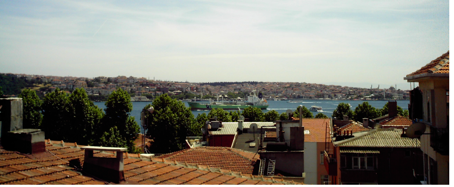Turkey, Islam, and the EU
Contrary to the “clash of civilizations” thesis, social scientists have found that Islam and democracy are not inherently in conflict. Controversy over Turkey’s application to the European Union highlights how concerns over cultural difference impact EU policy decisions. Despite claims to the contrary, Turkey is more similar to Europe than many assume.
Listen to the podcast
We interviewed Jeffrey Dixon for the Contexts Podcast. The episode isn’t up yet, but subscribe now anyway so you’ll get it right when it comes out!
Get the data
We asked Jeffrey for some resources to help people learn more about religion, democracy and human rights. Turns out, you can find the exact data Jeffrey used in this article, along with other data on human rights, democracy and religion on the following websites:
- The World Values Survey, where you can download the data used in this article.
- Pew Global Attitudes: data and a variety of reports, including one used in this article on the importance people place on religion.
- Freedom House, an international organization that monitors democracy noted in this article. Freedom in the World contains data on the levels of freedom in various countries and territories.
- Polity IV data also provide information on the level of democratic development all over the world and are frequently used among academics.
- The Religion and State Project.
- Minorities at Risk, a dataset that undertakes the very difficult task of attempting to standardize data across countries about the positions of racial/ethnic minorities.
- For information on international gender inequality, see the UNDP’s Human Development Report.
Teaching Ideas
Teaching a course on religion and human rights? Jeffrey Dixon passes along these helpful teaching ideas:
First, students do a research paper:
In my introductory sociology class, I ask students to do some preliminary historical and contemporary research on a country of their choice, from among the choices I give them (which does not include the US, but does include a number of predominantly Muslim countries [many of which are former colonies: see this map] as well as a number of former colonial powers). I asked them to identify basic historical and contemporary information, such as its history of colonization (if any), the level of inequality and poverty within the country today and how it compares to other countries, its contemporary economic position in the world today, its predominant religion, its level of democratic development, and its extent of gender inequality (largely using the resources noted above). I then ask them how the evidence relates to theoretical explanations of global inequality we cover.
A good starting point is the CIA World Factbook. Note, however, that some of this information may be dated and/or in need of a check/verification against other data—e.g., from the World Bank, International Monetary Fund (IMF), US Population Reference Bureau, or some other source.
Dixon follows this up with an activity:
I do an activity in which the students play the part of their country in order to decide what—if anything—should be done to redress global inequality and poverty in the context of the UN Millennium Goals
Learn more about the EU
Check out europa.eu, especially the Basic Information page. This can provide you with a very brief and informative understanding of this very complex institution. Also check out this map of member and candidate states: PDF (6MB).
About Turkey
Dixon offers some more resources on Turkey:
- Hürriyet Daily News is where I generally get my Turkish news (in English)
- In light of the very high levels of anti-Americanism while I was living in Turkey (see this report as well as this), a reporter wrote a story about it, in which she quotes me: “Turkish Anti-Americanism Through Eyes of Americans Living in Turkey.”
- The Turkish Statistical Institute, an official governmental source of Turkish data that I used while I was researching and teaching in Turkey
- The Turkish Demographic and Health Survey
- Interested in visiting? Check out mymerhaba.com, a user-created website, largely for yabanci (foreigners).
Want to visit Turkey? Dixon says: “Check out this picture of our former apartment in Istanbul below and then decide!”

